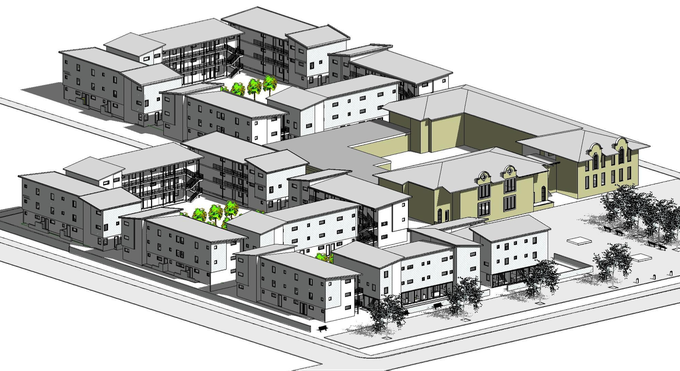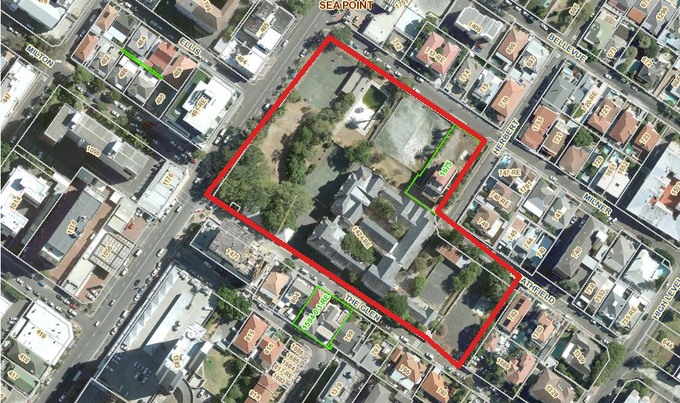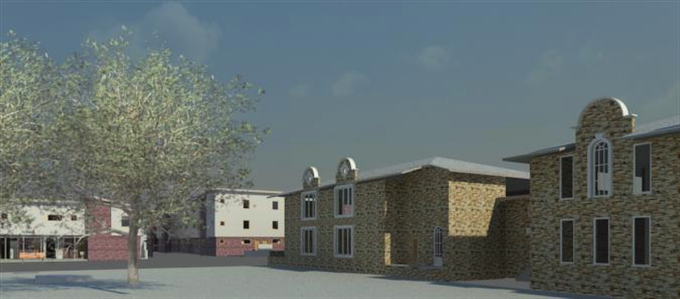Tafelberg site could house 200 families at rents from R700 a month
2012 study laid out plan for social housing
The Tafelberg School site could contain at least 200 homes, at rents of between R700 and R2,250 a month, with a community hall and shops, according to a design submitted to the provincial government in 2012.
The R500,000 feasibility report by the Social Housing Regulatory Authority (SHRA) found that development of social housing on the Tafelberg property was feasible and laid out a potential business plan.
Costs for the site, including 204 new units and ten refurbished units, as well as shops and a community hall, were estimated at about R72 million. The Tafelberg housing would serve those with incomes between R1,500 and R7,500 per month. With fewer parking places, the number of homes could rise to 341, the report said.
The plan was submitted to the court as part of an application by Reclaim the City and others to interdict the transfer of the property. Reclaim the City wants affordable housing to be built on the site, which is owned by the provincial government, instead of a private school. According to Ndifuna Ukwazi (NU), which is part of the campaign, the provincial government has since agreed to temporarily halt the transfer.
“It couldn’t be a detailed business plan until we had confirmation to go forward with that,” said Malcolm McCarthy, who was involved in approaching the SHRA to approve the study. “It was a scoping business plan to show if it was actually feasible, and it was.”
According to McCarthy, who is general manager of the National Association of Social Housing Organisations (NASHO), the report was sent to the province’s Department of Transport and Public Works. The association offered to hold a workshop with the department but received no response.
This scoping plan laid out the possibility for new housing units, refurbished units in the existing buildings, and a few shops. The writers of the report said the plan would contribute towards the objectives of both the Department of Transport and Public Works and the Department of Human Settlements.
According to data released by the City of Cape Town, 494,000 households qualify for social housing, not including those earning between R1,500 and R3,500 who can qualify for Reconstruction and Development Programme subsidised homes. There are however only 4,485 social housing units in the city, according to NASHO records.

“When it comes to releasing land, it doesn’t say you have to sell to the highest bidder,” said McCarthy of the provincial government’s sale of the Tafelberg site. “You have to maximise use of that asset in terms of its social development potential.”
Gavin Silber, a researcher at NU, stressed that the service delivery need outweighed the monetary benefits of a sale. “The Province would forego R135 million [the price of the sale] by transferring the land to a social housing institution, but the long-term social and financial benefits of this would be worth it,” he said. “The law also prescribes that public land first be used for service delivery needs before being sold on the open market.”
McCarthy cited the Steen Villa project in Steenberg as an example of the successful implementation of social housing. The site was originally going to be sold to private developers who would have built 106 housing units. Instead it was leased, creating 700 units.
Both the Western Cape Department of Transport and Public Works and Department of Human Settlements declined to comment because the matter is currently before court.

Support independent journalism
Donate using Payfast

Next: Wife of station bomber dies
Previous: “Our school of snakes and criminals”
© 2016 GroundUp. 
This article is licensed under a Creative Commons Attribution-NoDerivatives 4.0 International License.
You may republish this article, so long as you credit the authors and GroundUp, and do not change the text. Please include a link back to the original article.

